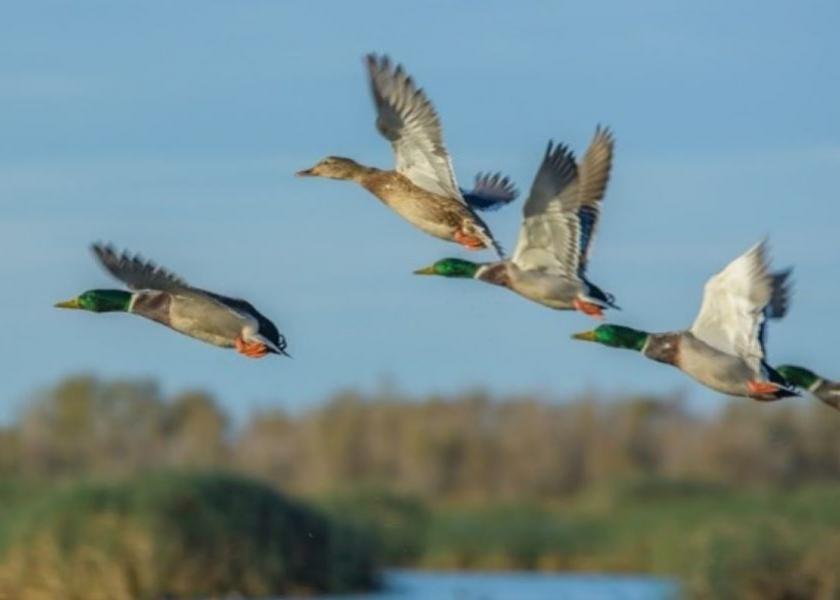USDA Boosts Wild Bird Surveillance For Avian Influenza

USDA's Animal and Plant Health Inspection Service (APHIS) is expanding wild bird surveillance for avian influenza to include the Mississippi and Central Flyways. This expansion also enlarged the existing surveillance program in the Atlantic and Pacific Flyways, which is in place to conduct surveillance of birds that may interact with wild birds from Europe and Asia, APHIS said in a release.
APHIS confirmed highly pathogenic avian influenza (HPAI) in wild birds in several states in the Atlantic Flyway in January as well as in a commercial turkey flock in Indiana on Feb. 8. Additional surveillance will increase the agency's capability to track the disease throughout the country.
"Wild bird surveillance provides an early warning system for the introduction and distribution of avian influenza viruses of concern in the United States. This surveillance also ensures APHIS and the poultry industry are able to enhance biosecurity measures and rapidly respond to reduce the risk of disease spread," APHIS said in a release.
The National Wildlife Disease Program is working to collect16,500 samples in 25 states. Adding surveillance in the Mississippi and Central Flyways will involve collecting an additional 14,500 wild bird samples for a total of more than 31,000 wild bird samples in 49 states.
Surveillance sampling in all four Flyways will assist efforts to better understand the presence of variants of concern and help us monitor movement of avian influenza strains along migratory pathways, APHIS explained.
Increased surveillance of the Flyways will include the following:
- Sample collection in targeted watersheds in the Central and Mississippi Flyways
- Opportunistic sampling of wild bird species obtained through agency removal programs, such as at airports or for crop damage management, airport removal and other agency captures
- Coordination with State Department of Wildlife/Natural Resources during bird banding operations
- Continued vigilance and investigation of wild bird morbidity and mortality events.
Poultry producers are encouraged to review their farm's biosecurity plan and enhance biosecurity practices to ensure the bird health. In addition to practicing good biosecurity, all bird owners should prevent contact between their birds and wild birds and report sick birds or unusual bird deaths to state/federal officials, either through their state veterinarian or through USDA’s toll-free number at 1-866-536-7593. Additional information on biosecurity for backyard flocks can be found at http://healthybirds.aphis.usda.gov.
Read More:
Highly Pathogenic Avian Flu Found in Indiana Turkey Flock







